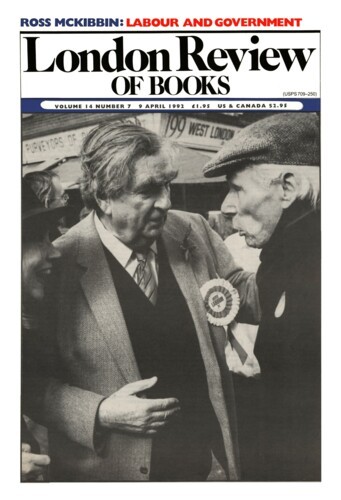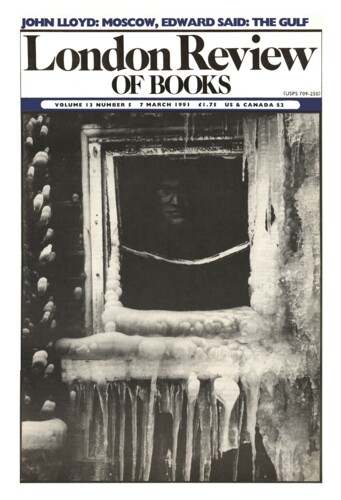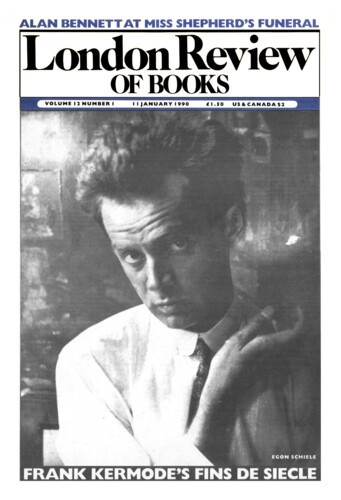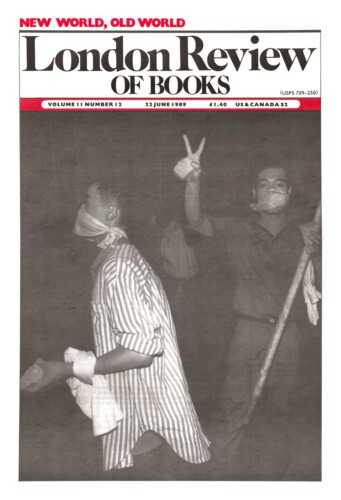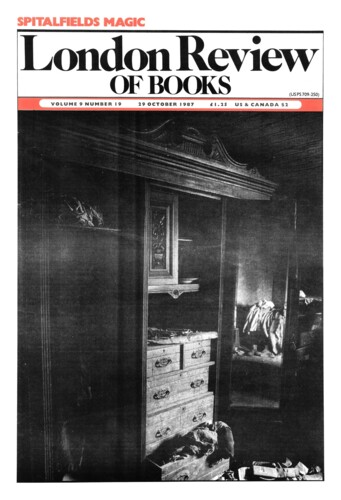Protestant Guilt
Tom Paulin, 9 April 1992
There is a particular type of literary criticism – these days very rare – that aims to exist intensely as bravura performance, dramatic spectacle. It would be pointless to object that the performing critic is merely a rhetorician engaged in digging and falling into a subjective pit of empty images, further descriptions, meaningless or questionable value-judgments. If we admire the critic’s imagination then we are bound to attend to the performance – a performance that lives only, of at least most intensely, in a first reading. Go back over the text and much of it seems to have melted into a series of repetitive rhetorical gestures that are all dead letter, not living spirit.’
